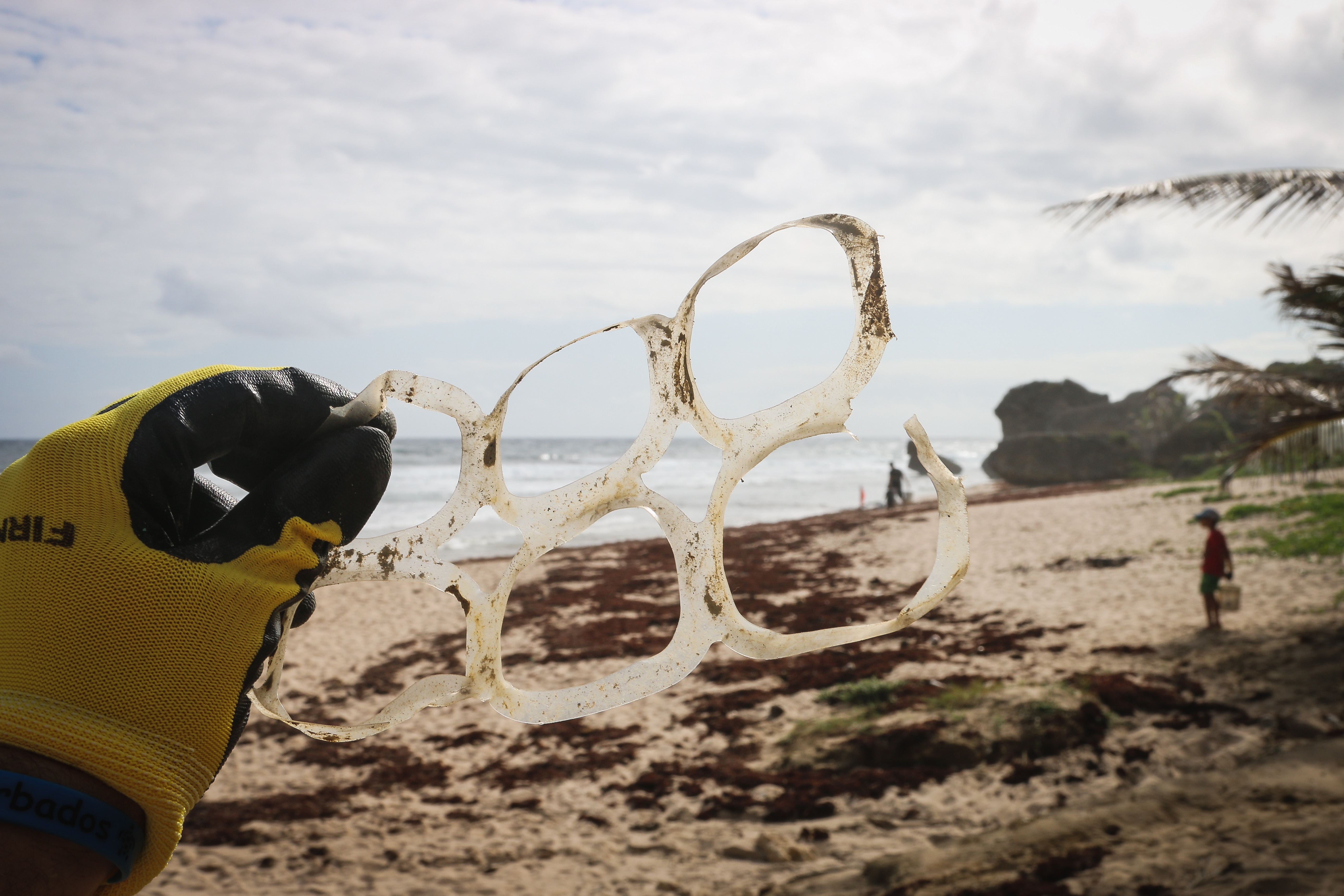(English Follow)
Tú como lector de la revista Sierra, eres lo que llamamos un gran "reciclador". Reciclas todo lo que puedes. Y la sangre te hierve cuando ves que alguien tira una lata de refresco a la basura en vez de ponerla en el contenedor de reciclaje.
Muchos de los problemas ambientales de hoy son enormes, pero hay algo que sí podemos controlar y practicar todos los días para limitar el daño que causamos con nuestro estilo de vida. Mantengamos la basura fuera de los basureros y utilicemos las mismas materias primas una y otra vez.
Edward Humes, colaborador desde hace tiempo de esta revista explica que durante un cuarto de siglo, China recibió basura del extranjero para supuestamente reciclarla, hasta que hace poco dejó de hacerlo. En realidad gran parte de esa basura y plástico que enviábamos al extranjero nunca se recicló, simplemente millones de toneladas se arrojaron en los ríos de China, que fueron a parar al océano Pacífico.
Los anillos plásticos que hemos visto asfixiando a los animales marinos podrían provenir de las papeleras de todos esos bienintencionados recicladores estadounidenses.
Para Humes esta decisión de China es una gran oportunidad para rehacer nuestra industria nacional. Contamos con modelos para esa reinvención, comenzando con las operaciones de reciclaje de la comunidad que florecen al volver a lo básico: tomar solo materiales limpios y bien clasificados y rechazar el resto. Las empresas estadounidenses están ansiosas por la materia prima reciclada. Como por ejemplo CarbonLite, una empresa estadounidense que cuenta con un innovador método para reciclar botellas de plástico y cuyo crecimiento está limitado por la falta de materias primas.
Hay que reinventar el reciclaje. No debemos reciclar todo. Un estudio muestra que los costos ambientales del reciclaje a veces superan los de los basureros. ¿Recuerdas el mantra "Reducir, reutilizar y reciclar"? Precisamente hay una razón por la cual el reciclaje es el tercero de la lista: reducir y reutilizar son mucho más importantes.
Basado en el artículo original de Paul Rauber | Revista Sierra
Adaptado al español por Fabián Capecchi

Foto de Sam Jotham Sutharson
We're Recyling Wrong
It is necessary to review again the process on how to separate and remove the garbage.
As a reader of Sierra magazine, you are what we call a great "recycler". You recycle everything you can. And your blood boils when you see someone throw a can of soda into the trash instead of putting it in the recycling bin.
Many of today's environmental problems are enormous, but there is something that we can control and practice every day to limit the damage we cause with our lifestyle. Keep garbage out of garbage cans and use the same raw materials over and over again.
A longtime contributor to this magazine, Edward Humes, explains that for a quarter of a century, China received garbage from abroad to supposedly recycle it, until recently it stopped doing so. Actually much of that garbage and plastic that we sent abroad was never recycled, simply millions of tons were dumped into the rivers of China, which ended up in the Pacific Ocean.
The plastic rings that we have seen asphyxiating the marine animals could come from the bins of all those well-meaning US recyclers.
For Humes this decision of China is a great opportunity to rebuild our national industry. We have models for that reinvention, starting with the recycling operations of the community that flourish when going back to basics: take only clean and well classified materials and reject the rest. American companies are eager for recycled raw material. As for example CarbonLite, a US company that has an innovative method to recycle plastic bottles and whose growth is limited by the lack of raw materials.
We have to reinvent recycling. We must not recycle everything. A study shows that the environmental costs of recycling sometimes outweigh those of landfilling. Do you remember the mantra "Reduce, reuse and recycle"? Indeed, there is a reason why recycling is the third on the list: reduce and reuse are far more important.
Based on an original article by Paul Rauber | Sierra Magazine
Adapted to Spanish by Fabián Cappechi
